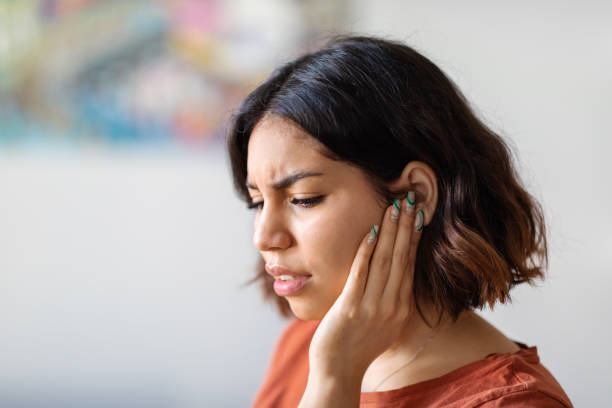How Earwax Build-Up Can Affect Your Hearing and Balance
How Earwax Build-Up Can Affect Your Hearing Earwax, or cerumen, is a natural substance produced by glands in the ear canal. Despite its often-misunderstood reputation, earwax plays a crucial role in protecting the ear. It traps dirt, dust, and other particles, preventing them from reaching the delicate eardrum. However, excessive accumulation of earwax can lead to a range of problems, particularly affecting your hearing and balance. This article explores how earwax build-up can interfere with your auditory and vestibular systems, the symptoms of excessive cerumen, and how to manage it effectively to maintain ear health. Understanding the Role of Earwax Before delving into the impact of earwax build-up, it’s important to understand why our bodies produce it in the first place. 1. Protective Barrier Earwax acts as a natural barrier that prevents foreign particles, bacteria, and fungi from entering the ear canal. Its sticky consistency traps contaminants, safeguarding the ear from infections and injuries. 2. Moisturizer Cerumen helps keep the ear canal moisturized, preventing dryness and itchiness. Without it, the ear canal could become irritated or prone to injury. 3. Self-Cleaning Mechanism The ear has a natural cleaning process where old earwax, along with trapped debris, migrates from the inner ear to the outer ear, where it eventually falls out. This process is facilitated by jaw movements, such as chewing and talking. While earwax is beneficial in moderate amounts, problems arise when it accumulates excessively, leading to blockage. Causes of Earwax Build-Up Excessive earwax build-up can occur for several reasons: 1. Overproduction of Cerumen Some people naturally produce more earwax than others due to genetics, lifestyle, or environmental factors. 2. Narrow or Abnormally Shaped Ear Canals Individuals with narrow or unusually shaped ear canals are more likely to experience blockages. 3. Improper Cleaning Habits Using cotton swabs or other objects to clean the ear can push wax deeper into the canal, causing impaction rather than removal. 4. Use of Hearing Aids or Earplugs Devices that sit in the ear canal can prevent earwax from naturally migrating out, leading to build-up. 5. Aging As we age, earwax tends to become drier and harder, increasing the likelihood of impaction. How Earwax Build-Up Affects Hearing The inner ear is home to the vestibular system, which plays a crucial role in maintaining balance. While earwax itself doesn’t directly impact the inner ear, its effects on balance occur through related mechanisms: 1. Vestibular Nerve Irritation If earwax impaction leads to an ear infection or inflammation, the vestibular nerve can become irritated, causing dizziness or vertigo. 2. Altered Pressure in the Ear Canal Blocked ear canals can disrupt the pressure equilibrium, leading to sensations of imbalance. 3. Tinnitus and Dizziness Excessive earwax is a known contributor to tinnitus (ringing in the ears), which can be accompanied by dizziness or a spinning sensation. Symptoms of Earwax Build-Up Recognizing the symptoms of excessive earwax is essential for seeking timely treatment. Common signs include: Hearing loss: Muffled or reduced ability to hear sounds. Earache: Pain or a feeling of fullness in the ear. Tinnitus: Ringing, buzzing, or humming sounds in the ear. Dizziness: Feelings of imbalance or vertigo. Itching or discomfort: Irritation in the ear canal. Discharge: A brown or yellow fluid leaking from the ear, which may indicate impacted earwax. https://cleanerears.co.uk/wp-content/uploads/2020/09/client-review.mp4 Complications of Untreated Earwax Build-Up Ignoring earwax build-up can lead to several complications: 1. Ear Infections Blocked earwax creates a warm, moist environment that fosters bacterial growth, increasing the risk of infections. 2. Permanent Hearing Damage In severe cases, prolonged earwax impaction can cause permanent damage to the eardrum or ear canal. 3. Chronic Tinnitus Persistent blockage can exacerbate tinnitus, leading to chronic discomfort and stress. 4. Balance Disorders Ongoing irritation or pressure in the ear canal can contribute to long-term balance issues. Treatment Options for Earwax Build-Up There are several effective treatments to address earwax build-up: 1. Professional Ear Cleaning A doctor or audiologist can safely remove earwax using methods like: Microsuction: A gentle suction device removes wax without damaging the ear canal. Irrigation: Warm water or saline solution is flushed into the ear to dislodge wax. Learn more about this method at ear irrigation. Manual Removal: Specialized tools like curettes are used to extract the wax. 2. Earwax Softeners Over-the-counter ear drops containing hydrogen peroxide, saline, or mineral oil can help soften the wax, making it easier to remove. 3. Avoiding Cotton Swabs Cotton swabs can push wax deeper into the ear canal. Avoid using them for cleaning. 4. Ear Candling: A Warning Though marketed as a natural remedy, ear candling is not recommended. It is ineffective and can lead to burns or other injuries. For comprehensive ear cleaning solutions, check out Cleaner Ears’ ear cleaning services. Preventing Earwax Build-Up While some individuals are more prone to earwax accumulation, the following tips can help minimize the risk: 1. Routine Check-Ups Regular visits to an audiologist can help monitor ear health and address build-up before it becomes problematic. 2. Proper Cleaning Techniques Clean only the outer ear with a damp cloth and avoid inserting objects into the ear canal. 3. Stay Hydrated Adequate hydration can prevent the wax from becoming too hard and difficult to remove. 4. Use Earplugs Sparingly Minimize the use of earplugs or in-ear headphones, which can trap wax. Conclusion Earwax is a natural and essential substance that protects the ears, but excessive build-up can lead to significant issues, including hearing loss and balance problems. By recognizing the symptoms and seeking appropriate treatment, you can maintain healthy ears and prevent complications. Regular check-ups and proper ear care can go a long way in ensuring optimal auditory and vestibular function. Your hearing and balance are integral to your quality of life, and something as simple as managing earwax can make a world of difference. If you suspect earwax build-up, don’t hesitate to consult a healthcare provider or explore professional earwax removal services like those offered by Cleaner Ears.




